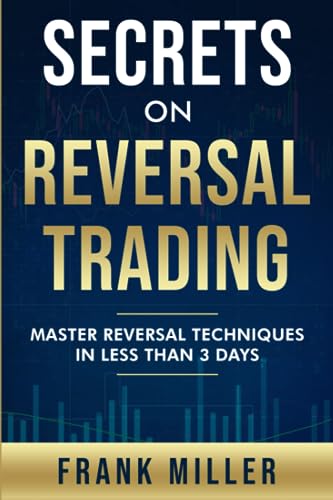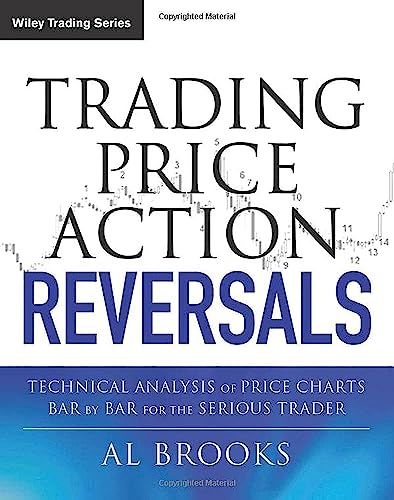- Miller, Frank (Author)
- English (Publication Language)
- 92 Pages - 11/01/2020 (Publication Date) - Independently published (Publisher)
Introduction
Reversal trading is a powerful strategy that allows traders to profit from market reversals. By identifying key reversal patterns, traders can enter trades at the beginning of a new trend, maximizing their profit potential. In this article, we will explore the concept of reversal trading and how it can be used to generate consistent profits in the financial markets.
Understanding Reversal Trading
Reversal trading is based on the idea that markets tend to move in trends, but these trends are not infinite. At some point, a trend will exhaust itself and reverse direction. By identifying these reversal points, traders can position themselves to profit from the beginning of a new trend.
Key Reversal Patterns
There are several key reversal patterns that traders can look for to identify potential trading opportunities. These patterns include:
1. Head and Shoulders: This pattern consists of three peaks, with the middle peak being the highest. It indicates a potential reversal from an uptrend to a downtrend or vice versa.
2. Double Top/Bottom: This pattern occurs when the price reaches a high or low point twice, indicating a potential reversal.
3. Engulfing Candlestick: This pattern occurs when a candlestick completely engulfs the previous candlestick, indicating a potential reversal in the opposite direction.
Implementing a Reversal Trading Strategy
To implement a reversal trading strategy, traders need to follow a systematic approach. Here are some key steps to consider:
1. Identify potential reversal patterns: Use technical analysis tools and indicators to identify key reversal patterns in the market.
2. Confirm the reversal signal: Look for additional confirmation signals, such as trendline breaks or momentum indicators, to validate the reversal pattern.
3. Set entry and exit points: Determine the optimal entry and exit points for your trades based on the identified reversal pattern.
4. Manage risk: Implement proper risk management techniques, such as setting stop-loss orders, to protect your capital in case the trade goes against you.
5. Monitor and adjust: Continuously monitor your trades and make necessary adjustments based on market conditions.
Conclusion
Reversal trading is a profitable strategy that allows traders to capitalize on market reversals. By identifying key reversal patterns and implementing a systematic approach, traders can position themselves to profit from the beginning of a new trend. However, it is important to remember that no trading strategy is foolproof, and proper risk management is crucial. With the right knowledge and skills, reversal trading can be a valuable tool in a trader’s arsenal.
- Miller, Frank (Author)
- English (Publication Language)
- 92 Pages - 11/01/2020 (Publication Date) - Independently published (Publisher)
- Hardcover Book
- Brooks, Al (Author)
- English (Publication Language)
- 576 Pages - 01/24/2012 (Publication Date) - Wiley (Publisher)
- Pecaut, Rayner (Author)
- English (Publication Language)
- 71 Pages - 08/04/2022 (Publication Date) - Independently published (Publisher)
- Baker, Elliot (Author)
- English (Publication Language)
- 74 Pages - 06/15/2023 (Publication Date) - Independently published (Publisher)




